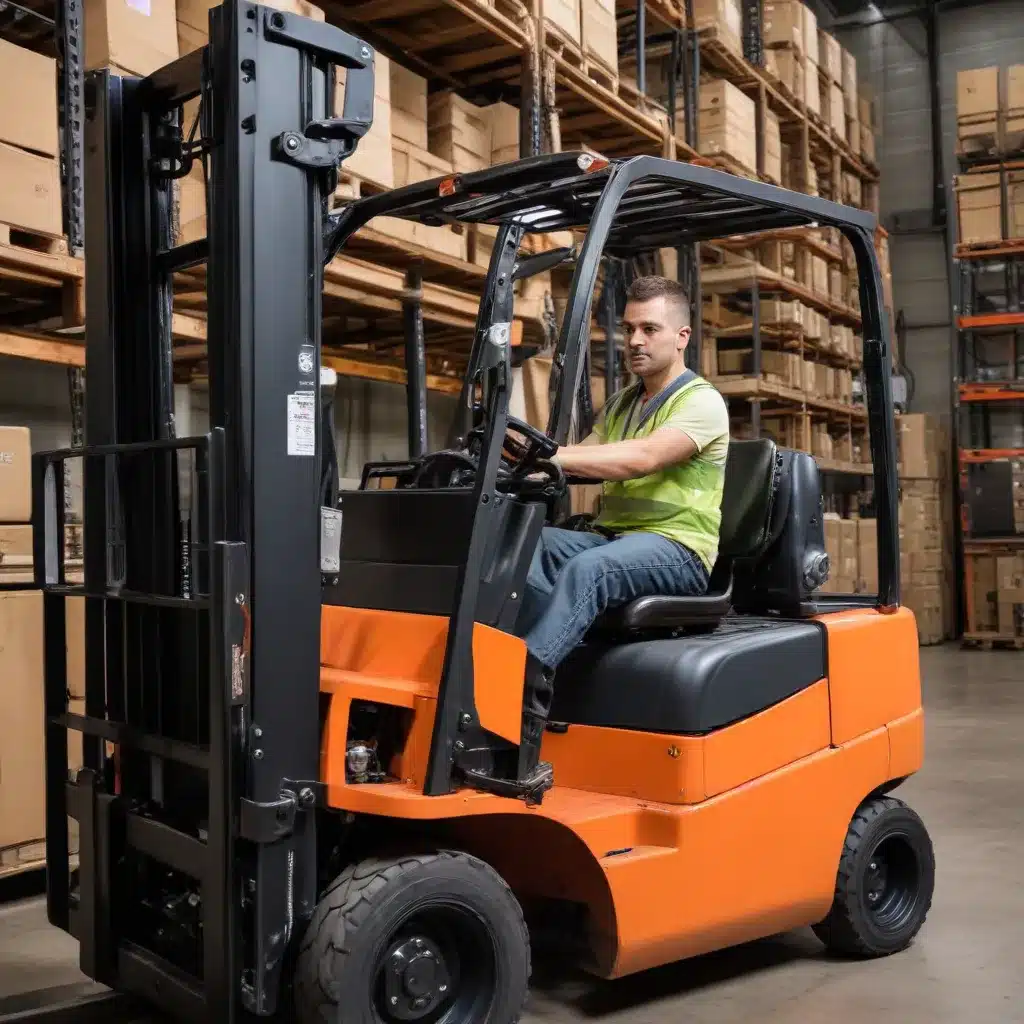
The Pivotal Role of Forklift Operator Certification
Maintaining a productive and safe work environment is a top priority for any business that relies on material handling equipment, such as forklifts. However, the risks associated with improper forklift operation cannot be overlooked. Investing in comprehensive forklift operator certification not only enhances workplace safety but also yields significant returns on investment (ROI) for companies.
Research conducted by the Industrial Truck Association (ITA) reveals that companies with certified forklift operators experience a 25% reduction in workplace accidents compared to those without proper certification. Furthermore, the National Institute for Occupational Safety and Health (NIOSH) reports that nearly 70% of forklift accidents could be prevented with appropriate training and adherence to safety protocols. These statistics underscore the critical role that forklift operator certification plays in mitigating risks and fostering a safer work environment.
Beyond the safety considerations, forklift operator certification also directly correlates with increased productivity. A skilled operator maneuvers equipment swiftly and accurately, optimizing workflow and minimizing delays. The International Warehouse Logistics Association (IWLA) estimates that certified forklift operators are up to 30% more productive than their non-certified counterparts. This boost in productivity translates to tangible benefits, such as faster turnaround times, improved order fulfillment, and enhanced customer satisfaction.
Forklift Maintenance: A Proactive Approach to Efficiency and Safety
Proper forklift maintenance is another essential component of maximizing safety and productivity in the workplace. Neglected forklifts can not only jeopardize the safety of the operator and surrounding workers but also lead to significant, expensive problems that require extended downtime to repair.
According to the Gregory Poole Lift Systems blog, approximately 85 forklift-related deaths and 34,900 forklift accidents are reported annually, with 20%-25% of these incidents resulting from improper training and the remaining portion attributed to inadequate maintenance and service.
Regular forklift maintenance ensures the mechanical integrity of the lift, as well as operator and crew safety. Some of the key benefits of a proactive maintenance approach include:
-
Reliable Performance and Increased Resale Value: Keeping your forklift on a strict servicing schedule ensures you get the most out of your machine, with years of dependable service. Well-maintained forklifts also command higher resale prices, as potential buyers can trust that the equipment has been properly cared for.
-
Improved Operator Confidence: Operators need to trust that their forklift will perform properly. Regular maintenance allows operators to be confident in the equipment, which is essential in fast-paced warehouse and industrial environments.
-
Planned Downtime and Minimal Disruptions: By scheduling proper service intervals, downtime can be planned in advance, allowing technicians to perform routine service tasks and replace worn-out parts during off-peak hours, minimizing disruptions to daily operations.
To maintain a forklift effectively, a comprehensive maintenance plan should include daily inspections, monthly service checks, and quarterly, semi-annual, and annual maintenance tasks, as recommended by the Occupational Safety and Health Administration (OSHA) and forklift manufacturers.
The Power of Operator Training: Enhancing Safety and Productivity
Forklift operator training is not just a legal requirement set by OSHA; it is a crucial investment in the safety and productivity of your workforce. The Medley Company blog highlights the importance of forklift operator training, noting that 7,000 forklift accidents occurred in 2022 alone, often resulting in injury, product damage, chemical spills, and even fatalities.
By investing in high-quality forklift operator training, businesses can expect to see the following benefits:
-
Enhanced Safety: Comprehensive training provides operators with essential instruction in forklift safety and operation, ensuring they are equipped to handle the equipment responsibly and minimize the risk of accidents.
-
Increased Productivity: Skilled, certified operators are more confident and efficient, able to maneuver forklifts swiftly and accurately, optimizing workflow and minimizing delays.
-
Cost Savings: Reducing accidents and equipment damage through proper training can lead to lower insurance premiums, fewer repair costs, and extended forklift lifespan, ultimately contributing to a healthier bottom line.
To maintain a safe and productive work environment, it is crucial for businesses to implement a robust forklift operator training program that covers both theoretical knowledge and practical, hands-on instruction. This not only ensures compliance with OSHA regulations but also empowers employees to become confident and competent in operating forklifts.
Maximizing ROI through Integrated Forklift Safety and Maintenance
The statistics speak for themselves: forklift operator certification and comprehensive maintenance programs are essential investments for businesses that rely on material handling equipment. By prioritizing both safety and efficiency, companies can unlock significant benefits, including reduced accident rates, increased productivity, and long-term cost savings.
Whether it’s enhancing the skills of your forklift operators, implementing a proactive maintenance schedule, or combining both strategies, the Forklift Reviews blog encourages businesses to take a holistic approach to forklift management. By demonstrating a commitment to safety and operational excellence, companies can not only protect their most valuable assets – their employees and equipment – but also position themselves for long-term success in today’s competitive market.
Key Takeaways
- Forklift operator certification is crucial for reducing workplace accidents, with certified operators experiencing up to 25% fewer incidents.
- Skilled, certified operators are up to 30% more productive than their non-certified counterparts, driving efficiency and customer satisfaction.
- Proactive forklift maintenance is essential for ensuring reliable performance, extending equipment lifespan, and minimizing disruptions to daily operations.
- Comprehensive forklift operator training empowers employees to handle equipment safely, reducing the risk of accidents and associated costs.
- Integrating operator certification and forklift maintenance strategies can yield significant returns on investment through enhanced safety, productivity, and cost savings.
By prioritizing forklift safety and maintenance, businesses can create a work environment that prioritizes the well-being of their employees, protects their valuable assets, and drives long-term success. Investing in these essential practices is not just a wise decision – it’s a strategic move that can elevate your organization to new heights of efficiency and profitability.

